Kuryama Group Youngster Freed from Rope Snare in Rwanda
By Gorilla Doctors Staff on Tuesday, February 5th, 2013 in Blog.In the fourth snare intervention performed by Gorilla Doctors in the last three weeks, four-year-old mountain gorilla female Dukore of Kuryama group was released from a rope snare by Gorilla Doctors on February 6 in Volcanoes National Park, Rwanda.
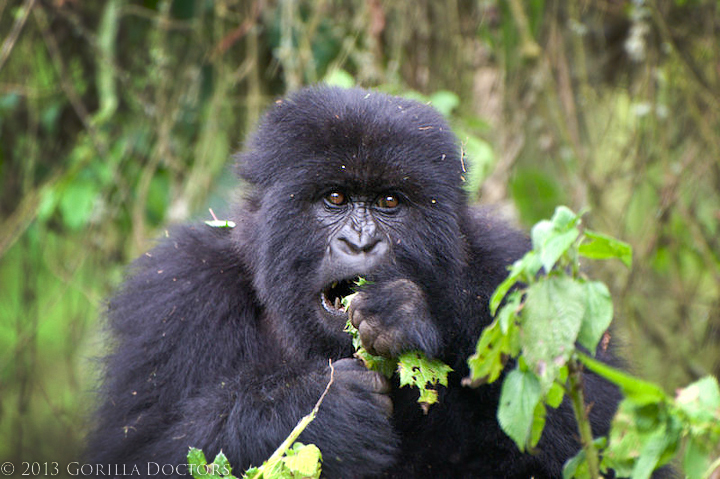 4-year-old female Dukore, feeding prior to intervention.
4-year-old female Dukore, feeding prior to intervention.
Dr. Dawn received word from the Dian Fossey Gorilla Fund’s Karisoke Research Center about the snare incident yesterday morning, and immediately began to assemble a team of Gorilla Docs to intervene.
Drs. Dawn and Noel, along with Volcanoes National Park Veterinary Warden Elisabeth Nyirakaragire and a group of Fossey Fund Karisoke trackers reached the group in the Kiguri area of the park, at an elevation of 3038 meters the following day.
Once within the group, the Gorilla Doctors’ assessment of the youngster indicated that Dukore was bright, alert, and active. She was feeding and moving well, but the rope snare remained around her left ankle. The decision was made to intervene to remove the snare and Dukore was anesthetized via a CO2 dart projection with ketamine and dexmedetomidine at 10:15am.
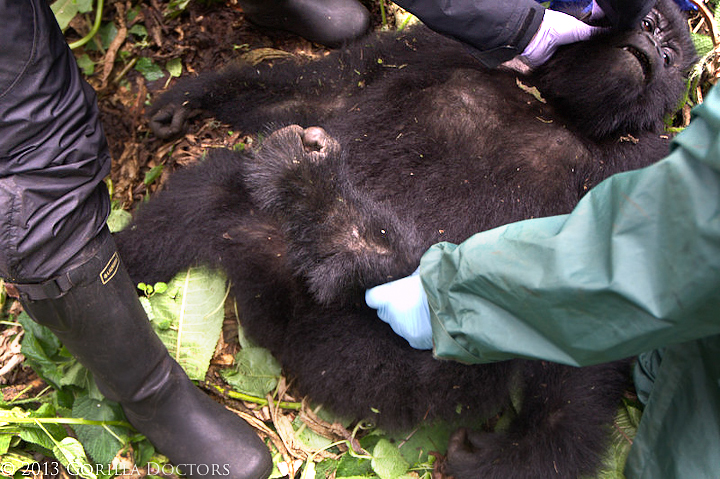 There was no injury to Dukore’s left leg from the snare.While Dukore was under anesthesia, Drs. Dawn and Noel first removed the rope snare and were encouraged to find that there was no injury to her leg or ankle. Although it appeared she had tried to free herself the previous day by chewing the rope, the snare had not tightened to the point where it affected her circulation. However, a small abrasion on the palm of her right hand was noted, which could have been sustained during her attempt to escape the snare.
There was no injury to Dukore’s left leg from the snare.While Dukore was under anesthesia, Drs. Dawn and Noel first removed the rope snare and were encouraged to find that there was no injury to her leg or ankle. Although it appeared she had tried to free herself the previous day by chewing the rope, the snare had not tightened to the point where it affected her circulation. However, a small abrasion on the palm of her right hand was noted, which could have been sustained during her attempt to escape the snare.
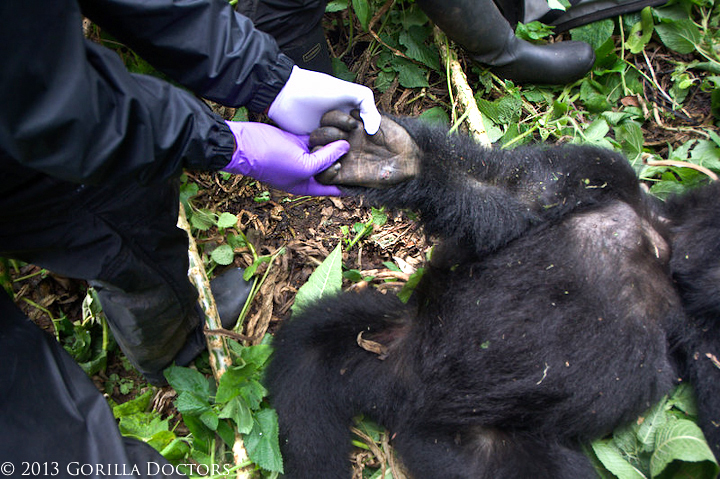 A small abrasion on Dukore’s right palm.
A small abrasion on Dukore’s right palm.
After removing the snare, Drs. Dawn and Noel completed a full physical exam of the young female and collected blood and other samples for future research. Antibiotic and anti-inflammatory drugs were administered to help Dukore make a full recovery.
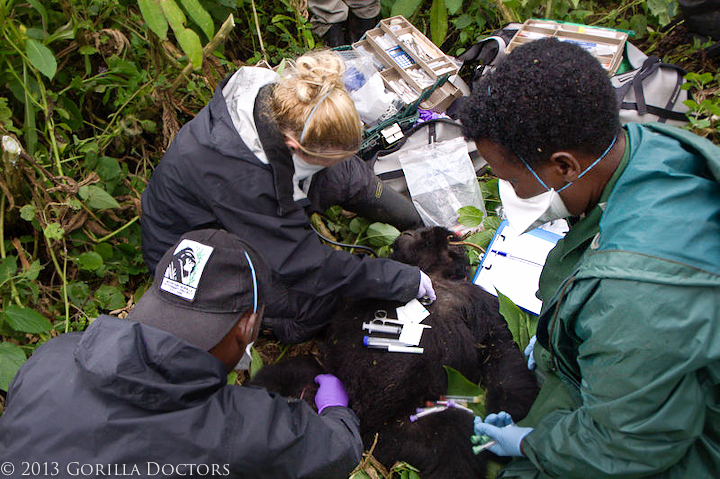 Drs. Dawn, Noel and VNP vet warden Elisabeth Nyirakaragire conduct a full physical exam of Dukore.
Drs. Dawn, Noel and VNP vet warden Elisabeth Nyirakaragire conduct a full physical exam of Dukore.
Dukore was under anesthesia for 39 minutes and was back on her feet at 10:52am, however, she did not immediately rejoin her group. Instead, she climbed up into a hagenia tree, where she rested for nearly an hour. By 11:50am, Dukore decided to join her other group members and was resting near her mother, Umutekeno.
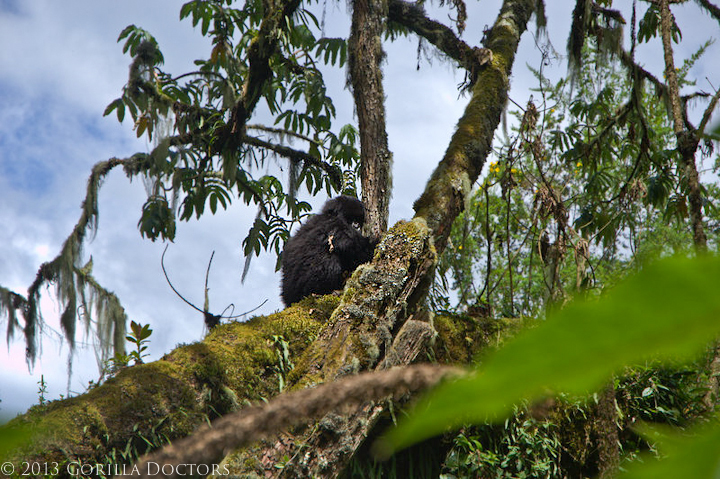 Once Dukore woke from anesthesia, she climbed into a hagenia tree to rest.
Once Dukore woke from anesthesia, she climbed into a hagenia tree to rest.
Snare incidents are typically more numerous in January and February, following the holiday season that brings an increased demand for bushmeat as a protein source for the people living close to the park. Judging by the high number of snare interventions that Gorilla Doctors has already conducted in 2013, and the fact that some 1200 snares were found and destroyed in Volcanoes National Park last year alone, poaching is still a very real threat to the health of the mountain gorilla population.
You can follow the Gorilla Doctors health monitoring efforts on our Facebook page, where we post photos and notes from our monthly visits.
Please consider supporting us by making a secure online donation. Every dollar you give goes to directly supporting our gorilla health programs and One Health initiative. Thank you for your generosity.


 Donate
Donate